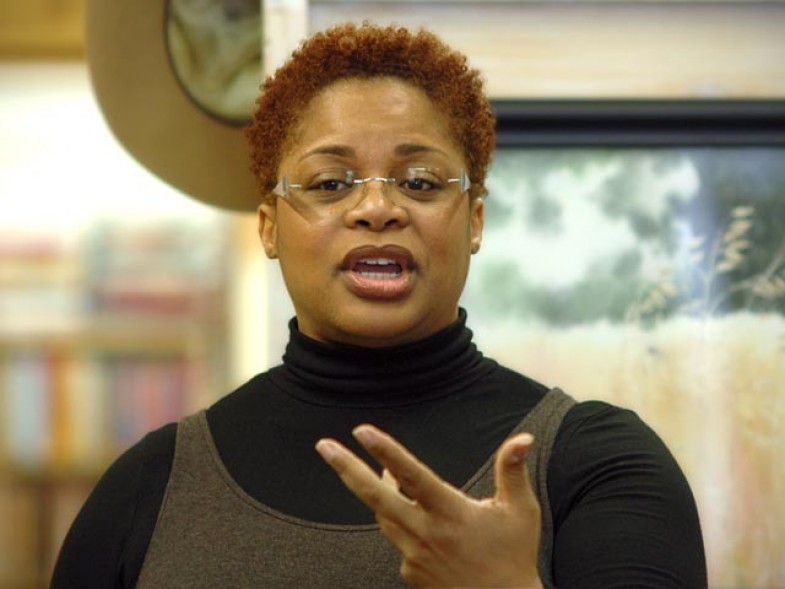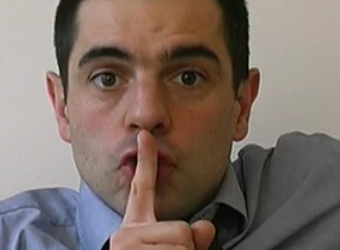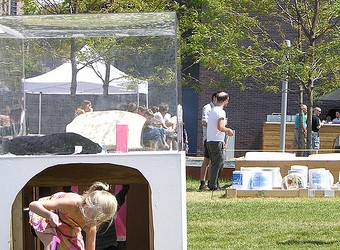Camille Gage: What drew you to become a poet, to follow that path?
Crystal Williams: Well, firstly: when I was young my mother and I went to the library every week. I read voraciously and wasn’t allowed to watch much TV, though I could watch The Electric Company, or Sesame Street, but other than that my life was really about playing with my friends, being with my mom and dad, and reading. I had an uncle who loved poetry. He taught me my first poem and a real love of language.
But most importantly, I had a mother who consistently trained me to be a thinker, to interrogate my thinking and actions. And for me at least, to be a poet is to deeply interrogate and try and find connections between myself and body and belief….that of others.
In another interview you mentioned that your mom was a stickler for language and didn’t allow you to use slang. I wondered if that was difficult for you as a young person.
I’m not sure it was difficult. If I used “ain’t”, my mother would be all over that, or, if I was slurring words, she’d say, “Crystal, enunciate!” I think this relates to my mother’s deep interest in class and in making sure that I had the capacity to move around as I wanted to. She understood that language is a vehicle for social mobility.
That said, our use of language became an obsession for me when I was a younger poet: colloquialisms and slang and feeling excluded in many ways, but especially from a language that should have been mine or at least should have felt like mine but which didn’t, even though it was all around me when I was young. And that’s interesting. I often feel outside of most things.
Last year I was in a conversation at a convention and ‘outsider status’ came up. And the woman I was talking with asked, “How much of your identity is really about being an outsider?” And it was the first time anybody had asked me that question. And I realized that a good deal of my identity is tied to being an outsider. I still position myself in that way, and that’s interesting and perhaps problematic, and I probably need to examine it a little bit more, but it is what it is.
There are topics that come up a lot in your work, and they’re big ones: death, beauty, race and class. Your father died when you were quite young, and your mother died when you were around the age of about 30?
Yes, I was exactly 30.
So a poem like Benediction is a beautiful meditation, very personal, and yet also very universal. How do you write about such a personal topic? Anything related to death and dying is so difficult to bring up, almost like the ‘third rail of life’: no one wants to bring up the fact that we’re all going to die.
Well, losing a parent as a child forces you to acknowledge and accept death, frankly. For me there was no escaping it. And over the years I’ve found writing is really the only way I can work through all of that loss and pain—any heighted emotion, really. Also, engaging poetry in the moment means that I can document who I was in a moment of extreme grief and I think that’s important.
I believe people go to poetry to experience something they might not have the language or the words for themselves. I’m always interested to see who comes up to me when I read those poems (about death). It’s typically people in their 60s, who are dealing with folks who are aging and dying. It’s almost never people who are young and have their nuclear family intact. And I don’t know if that’s a limitation of the poem I wrote or if the topic of death is really generation specific. Because I lost my mother and father when I was so young I’m one of the few people in my age cohort who has experienced and lived with—survived, I guess you could say—that kind of intense loss.
When I interviewed the poet Juliet Patterson she talked about how poetry is often read at times of passage: at births and deaths, at weddings, and how it helps to illuminate life’s mysteries: what happens after we pass on, what happens to our loved ones.
I was thinking about the same thing in relationship to aging. I’m not particularly interested in poems about aging. But those that do interest me are less about the body’s aging process as they are about memory, because, I think, memory is a thing that I do understand. My body is just beginning to “age” in a way that will allow me to enter those body-aging poems more fully. Tapping into the universal experience allows multiple generations and different kinds of readers to access what the poem is really getting to.
Lets discuss notions of beauty, which is something you have written a lot about. Do you see any of your writing on the topic of beauty as exploring a metaphor for not just physical beauty but extrapolating beyond the physical?
What’s so interesting about that question is that beauty is not a theme that I’ve historically thought of as my own; not at all. But I’ve come to know that we are, we American women, obsessed with physicality in hugely detrimental ways.
But I’m actually more interested in what we mean when we say “beautiful.” In my poem Wake, I struggle with what is beauty and why do we care, and what of spiritual beauty, and isn’t that what we should be striving for? For me, spiritual beauty is being of service to other human beings; finding connectedness and honesty and goodness and generosity. These are the things that are beautiful.
I think ultimately what I really believe – what I started believing the night my father died – is that we’re really nothing more than energy. And that the sacks we live in are not entirely important; they’re just a vehicle through which we can gain particular lessons. And it is really only that. The energy that we manifest and live in attracts other kinds of energy to it. It’s like the times you meet someone and there’s something energetic about them that draws you to them immediately and for the rest of your life.
I think that’s really where my quest for beauty comes up. The superficiality of it is not necessarily what interests me. If you set the sack aside, what is beauty? And how are we manifesting it? How is our energy circling through the world, and can we allow other people to see the energy that we really are?
When I was in high school I had a fantastic teacher with whom I had complicated conversations about the body and the spirit and a host of existential questions. I was driven to explore the questions, “What are we?” and the auxiliary question, “Why are we?” And when I was in high school I had a very keen sense that I was not in my body, that my body did not actually matter, and that I was something between a spirit and an energy. And I walked with that for years and years…… I understood us to be part of a continuum and not necessarily distinct from one another.
If you ponder the notion of the world as a commons that is underlined by a basic connection that is denied in the way we’re living now. We’ve abandoned a profound connectedness.
You know what I think? I think we’re like an Aspen grove. That’s really what I think. It appears when you look at it on the surface that there are distinct trees coming up out of the ground, that they each have different characteristics, they’re taller, bigger, whiter, whatever, right? But when you delve beneath the ground what seemed made of many is a single organism. That’s what I think we are.
That’s beautiful…Lets discuss diversity in the arts.
At this particular historic moment in theater in the United States, particularly in New York, you will find all kinds of playwrights who are represented on Broadway. And I mean ethnically, racially represented. And that’s pretty rare. As I experience it theater is so much stronger today than it was fifty years ago for precisely the reason that there are more voices on the stage, and therefore, more experiences and more truths on the stages.
What would American literature be without Julia Alvarez, without James Baldwin, without Toni Morrison? What would it be? It would be less interesting and less honest, less true. So for me that’s what is so imperative about diversity in the arts. Because I think the arts can help guide and inform and in some ways—and I don’t mean this to sound hyperbolic—help save us. But it can’t play this role if it’s speaking a single language. It cannot. It has to speak many languages—to many people, and I don’t think that any of those languages can be the dominant language. They all have to stand as equal partners.
I don’t think it’s necessarily hyperbolic to believe that art can – and must – play a role in solving the challenges that face us, and I’d like you to expand on that. How do you see the role of poetry and the arts evolving at a time that is incredibly fraught—with global warming, with the intense inequity in wealth distribution, etc. There are so many damaging things happening on the global stage, but even at the worst of times there’s also a lot of possibility, possibility for change. What role will poetry and the arts play in that?
It is a big question, and I wish I were more optimistic than I am. I think sometimes that our poems are too small. Not all of them, but I think sometimes our poems are too self-interested. They are too self-congratulatory. They don’t want to show their full heart. They’re overly interested in minor questions. Or minor histories, right? The poems that excite me, that make me hopeful are poems that ask us to think about our interconnectedness in a very active way and give us language to understand how to enact that connectedness in more positive ways. When I find poems like that, it is almost a spiritual experience. It is ecstatic. I get ecstatic when I read poems that really speak to the soul. One of the things I worry about is that those kinds of poems, because we’ve gotten so petty, so concerned with complexity, so overly enamored with “virtuosity,” I worry that those poems are being consistently disregarded as overly-sentimental, overly abstract or too broad. I so deeply appreciate poets who take up the charge of prophets. There are some poets who are just vehicles. You ask, “How’d you come to that?” and they say, “I have no idea.”
I think I’m always thinking metaphorically. Thinking not, “What am I” but “what are we? What does this mean? What is this in relation to the human experience? Is this a human condition?” I’ve always been like that. So when I’m thinking in that way, I’m not focused on the details of a specific experience. I’m focused on using those details to make a bigger understanding, which is how I make sense of the world. That makes writing a memoir very difficult! [laughs]
Your life is absolutely tailor made for a memoir, I would think.
It is?
It is. It’s so highly unusual. You’re uniquely positioned to write about being the Other, about understanding the Other, which is at the crux of so many of our issues and problems as a culture. The poet Juliet Patterson, who I interviewed earlier for Commons Magazine, is working on a memoir, and she talked about how memoirs have become best-sellers.
Yeah, they have been for several years.
Juliet Patterson believes it’s a reaction to an intense need to figure out who we are and where we’re going—and that the way that we can achieve that is by sharing our stories.
Yes, I actually think that memoir, in some ways, is doing the work that poetry used to. I think that people used to turn to poetry for exactly that kind of connectedness, to give voice to experience, and I think that memoir has taken that role—not taken it, but built upon it. And I think that’s part of the reason why there’s such a strong connection between memoirists and poets.
One of the strengths of your work, to me as a reader, is that even though your use of language is beautiful, intellectual and adventurous, I feel that it’s also really accessible.
I’m so happy to hear you say that, thank you!
Even though your writing is bold, it’s almost like reading your poems is like climbing a rock-wall, there are these little toe-holds where you can just keep going and feel a connection.
Oh, that’s great! That’s a great image. I want folks who are not poets or readers of poetry to be able to read my poems or hear my poems and understand that they’re being invited into the conversation, and that our language is being honored. I feel very strongly about that. I’m less interested in conversing with other poets. I’m much more interested in conversing with people.
Some people would say it’s simple. I’m not a poet of images. I’m a music person, so I’m using the language and the music in the language to try and help put forward a feeling.
Contemporary hip hop music, rap music, slang and other ways of speaking; language appears a huge part of African-American culture right now. How do you feel about how your work within that construct.
I am a sponge for language. One of the great sadnesses to me of leaving Detroit is that I miss the excitement of Detroiters use language. I was able to sponge it up and use it in my poetry, especially in my first book. My first book is so much about capturing the language of people in Detroit and people in DC. I’m not really a hip-hop head but not living in Detroit I have felt estranged, I guess, from the language of black people. Which, in Detroit, in some ways, is the language of the south melded with the language of the working class, right?
Your newest work is a book of poems about Detroit, correct?
Yes, it’s kind of Detroit as Barn.
Detroit as Barn?
I have a poem titled Detroit as Barn, and in the upcoming book there four or five poems of Detroit as Chihuahua, Detroit as Mother, and so on. These poems acknowledge Detroit as a metaphor.
I thought of a barn that I saw in Ohio that was very dilapidated. Several years later I was in the area again and it was still just sitting there in the same dilapidated state. And it struck me, that image, that that could be the city, right? It’s on its last leg, and yet it persists. And why is it persisting? My sense was that this barn was persisting because it’s built really well. And I thought that Detroit is actually built really well, and what under-girds the city is the people. And the people of Detroit are particular to it. They’re funny and hard-working and determined and stubborn. It’s just going to keep going, and that’s what the poem is really about. It’s a meditation, a metaphor for something more, and a metaphor for the whole country, I think.
I saw a video about an African-American man that owned a jazz club downtown for many years. The club owner said something I thought was very profound in response to people’s sneers about gentrification and the usurping of what culture remains in Detroit. He said, “Listen, there have been many people who have left the city and they have left holes. I don’t see this new energy in the City taking over or supplanting. Rather, I see these new folks as filling in the holes left by people who have gone. And that is how you build.” I thought that was exactly right.
Detroit has more than enough space to maintain the folks that are there, that have been there, and to also welcome in the new people. And that means Detroit has the opportunity to be an incredibly diverse, vibrant, and creative community. So I think it’s great. I’m thinking about buying a house for my retirement there, so when I retire I can go home. That’s what I want.





